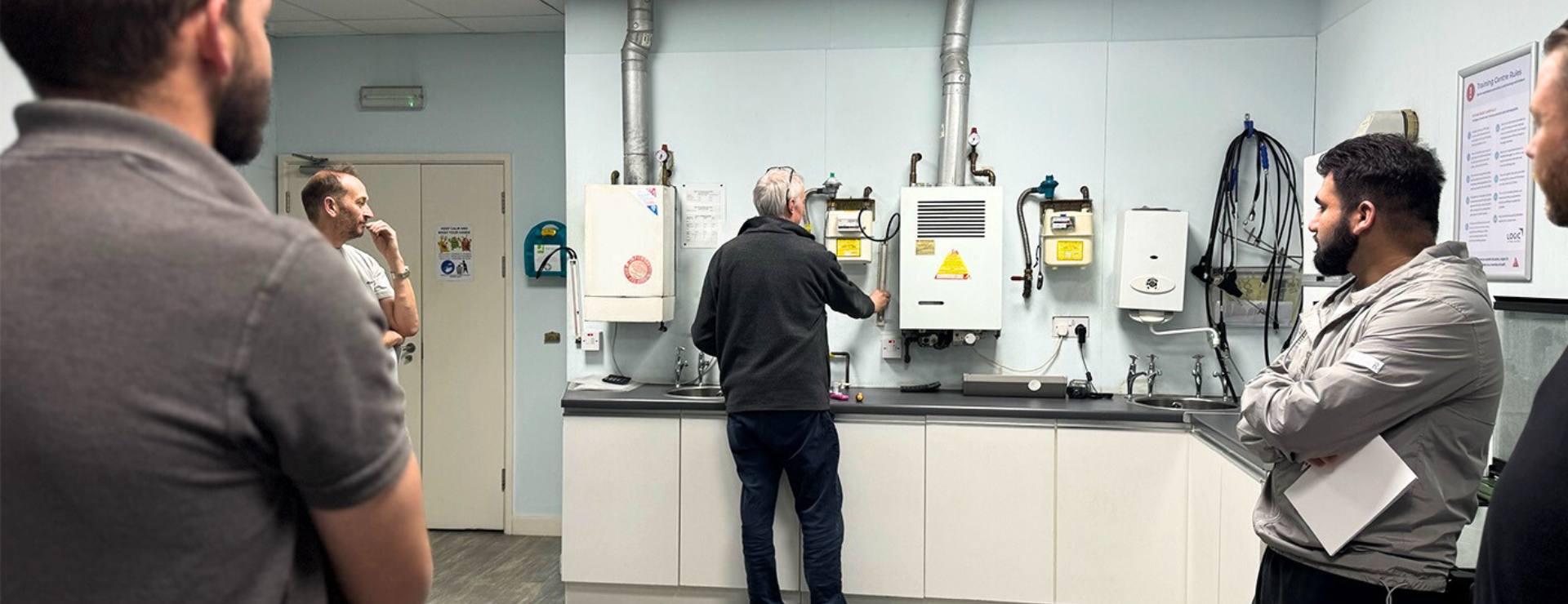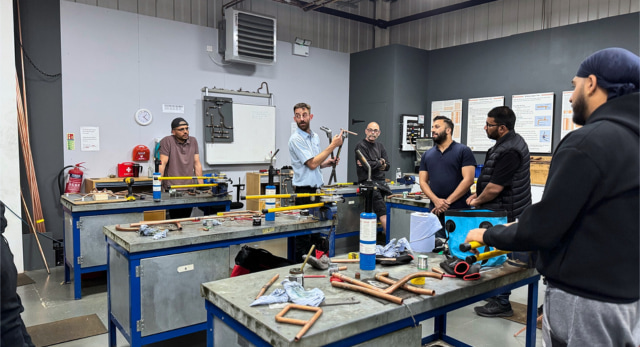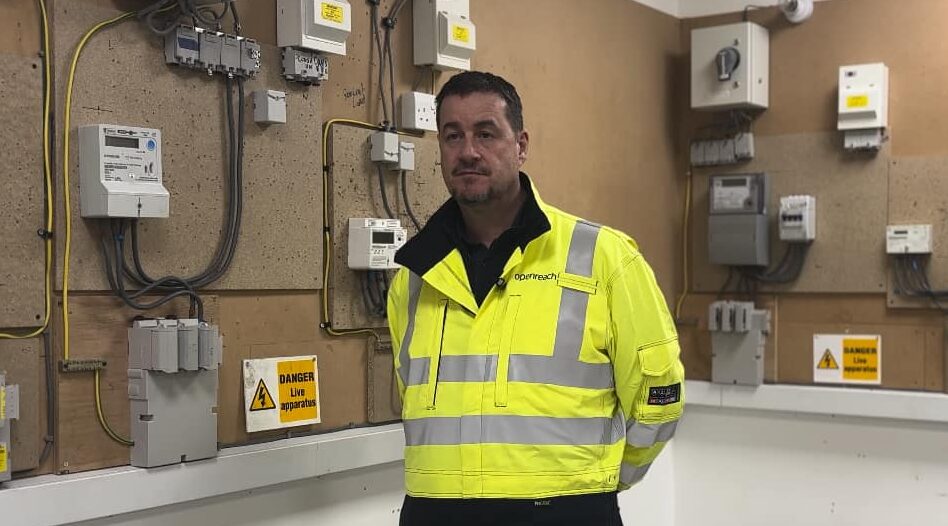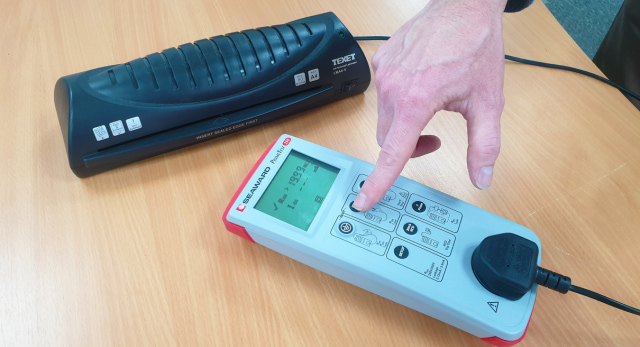Are you wanting to learn a trade in the UK and future proofing your career from AI? You’re not alone. The demand for skilled tradespeople will boom in 2026 so theres never been a better time to start. This article cuts through the noise to show you exactly how to learn a trade, from choosing the right path (apprenticeships, college, or training courses) to getting qualified and landing your first job. Whether you want to become a gas engineer, electrician, plumber, or renewables specialist, Logic4training is the industry leader for hands-on, accredited training that gets you job-ready. If you want real skills, real support, and a real career, you’re in the right place.

Why Learn a Trade in 2026?
The UK is crying out for skilled tradespeople. The construction and building services sectors are facing a massive skills shortage, with it being predicted that around 1 million additional tradespeople are needed by 2032. That means if you’ve got the skills, you’ll never be short of work so why not learn a trade?
Top reasons to learn a trade:
- The skills shortage: The UK construction industry faces a severe and multifaceted skills crisis driven by an ageing workforce, falling apprenticeship numbers, post-Brexit labour shortages, poor sector perception, lack of diversity, weak digital skills, and economic pressures, threatening housing targets, Net Zero goals, economic growth, and the overall quality and reputation of the sector unless urgent, coordinated action is taken.
- Future-proof from AI: A trade gives you skills that AI would struggle to replicate. While some tasks can be replicated by AI, each job is unique and requires a variety of complex skills, often carried out in environments that AI can’t reach.
- Be your own boss: Trades give you the freedom to work for yourself, set your own hours, and choose your clients.
- Earn what you’re worth: Skilled tradespeople can earn well above the national average, especially if you specialise or run your own business.
- Job security: With the UK’s ambitious housing targets and sustainability goals, demand for trades like electricians, plumbers, and renewable energy specialists is only going up.
- Variety and satisfaction: Every day’s different, you’re solving real problems, and you get the satisfaction of seeing the results of your work, whether that’s a warm home, a working boiler, or a sparkling new kitchen.
- A fresh start: Whether you’re 18 or 48, it’s never too late to switch careers and learn a trade. Many of our trainees are career-changers looking for something more rewarding.
- Debt-free alternative to university: Trade careers offer a practical, debt-free and future-proof alternative to university, delivering faster and cheaper routes into well-paid, highly employable roles while avoiding student loans and remaining resilient to automation in an AI-driven economy.
Which Trades Are in Demand in 2026?
The UK construction and building services industry needs to experience significant growth, but certain trades are seeing particularly high demand in 2026. Here are the roles that are most sought after this year, driven by skills shortages, ambitious housing targets, and the push for sustainability.
| Trade | Why? |
|---|---|
| General Builders | Massive housing targets: 1.5 million new homes planned |
| Electricians | Renewables, energy efficient systems |
| Plumbers & Gas Engineers | Green heating, new builds, skills gap |
| Carpenters & Joiners | Modular builds, home improvements |
| HVAC & Heat Pump Specialists | Low-carbon heating, sustainability targets |
| Renewable Energy Technicians | Solar, heat pumps, battery storage |
| Construction Managers | Project demand, site leadership |
| Prefabrication Specialists | Offsite construction, efficiency drives |
If you want to future-proof your career, upskilling in one of these areas is a smart move. At Logic4training, we offer courses in all the big trades. Just check out our courses page for the full range.
How Can You Learn a Trade?
There’s no one-size-fits-all route into the trades. The best path for you depends on your age, experience, finances, and how quickly you want to get qualified. Here’s the lowdown on your options:
1. Apprenticeships
- What are they? Earn while you learn. You’ll split your time between on-the-job training and classroom learning, usually over 2–4 years.
- Who’s it for? School leavers or anyone who wants to learn from the ground up, with a steady wage.
- Pros: Apprentices get paid whilst they learn, gain experience specific to their employer and build industry contacts.
- Cons: Lower wages while training, longer to qualify, and competitive entry. Apprenticeships can be hard for older learners as they have more commitments outside of work that can be a barrier to entering the trades.
Where to find apprenticeships:
- GOV.UK Apprenticeships
- Training providers, like ourselves – Logic4training Apprenticeships
- Local colleges
- Employers directly
2. College Courses
- What are they? Full-time or part-time courses at your local college, covering the theory and basics of your chosen trade.
- Who’s it for? Anyone looking for a foundation, especially those who prefer classroom learning.
- Pros: Structured learning often includes work placements, but is very dependent on the student’s willingness to complete the placement to high standards.
- Cons: May take longer, not always as hands-on as other routes.
Many college trades courses include a dedicated work placement, giving you the chance to put your skills into practice and start building valuable industry contacts. The length of time you’ll need to commit depends entirely on your chosen course and whether you opt for part-time or full-time study.
3. Training Courses (Logic4training’s Speciality)
- What are they? Shorter, focused courses that are designed to get you job-ready within the industry.
- Who’s it for? Career-changers, adults, or anyone who wants to get qualified more quickly than an apprenticeship and start earning.
- Pros: Fast, practical, often includes real-world experience and support with finding work.
- Cons: Upfront cost, but you’ll be earning sooner.
All of our new entrant training courses are focused on providing learners with hands-on, practical training that transfers into the working environment.
4. Online & Blended Learning
- What are they? Flexible courses you can do from home. It can be good for the theory elements (if done right), but you’ll need practical experience too.
- Who’s it for? People who need to fit learning around other commitments.
- Pros: Provides a way for busy people to learn the theoretical side of a trade.
- Cons: Many online training courses are misadvertised, provide poor learning materials and support, and lack the hands-on training that’s needed.
We strongly advise learners to avoid online training. Courses that are advertised as “Blended learning” also fall into this category. If you are considering an online or blended learning training course, we strongly advise you to thoroughly research the course and the company that’s providing it. Whilst it may sound good that you can “learn at your own pace”, there are significant risks with completing an online or blended training course.
5. On-the-Job Training
- What is it? Shadowing or working alongside an experienced tradesperson.
- Who’s it for? Anyone who can find a mentor or work experience placement.
- Pros: Real-world experience that’s learnt by doing and generally in the form of 1-1 learning.
- Cons: Not always paid, may not lead to formal qualifications and generally requires you to know someone already qualified and willing to take you on.
On-the-job training is an excellent way for people to learn a trade. Whilst it’s harder to find someone who will take you on and you won’t be guaranteed any qualifications, you will learn on the job and in a real-world environment.
What Qualifications Do You Need?
Getting qualified isn’t just about ticking boxes. It’s about making sure you can do the job safely, legally, and to a high standard. Here’s what you’ll need for most trades in the UK:
- Apprenticeship Certificate: Proof of on-the-job and classroom learning.
- Diplomas & NVQs: Formal recognition of your skills and knowledge.
- Short Course Certificates: For specific skills or compliance (e.g., health & safety, asbestos awareness).
- ACS (for Gas Engineers): The Nationally Accredited Certification Scheme—your ticket to the Gas Safe Register.
- CSCS Card: For working on construction sites.
To help you navigate the qualifications needed for each trade, here are some detailed guides from our own insights:
Plumbing
For a full breakdown of plumbing qualifications, including NVQs, diplomas, and upskilling routes, read What qualifications do I need to be a plumber? and visit our page on how to become a plumber in the UK.
Gas
For a full breakdown of plumbing qualifications, check out What qualifications do you need to become a gas engineer? and visit our page on how to become a gas engineer.
Electrics
For electrical qualifications, including Part P, the 18th Edition and more, check out our ultimate guide to electrician careers as well as our electrical training for beginners.
Pro tip: Always check that your course is accredited by a recognised body (like City & Guilds, LCL Awards, or NOCN). All Logic4training courses are fully accredited and industry recognised. No dodgy certificates here.
How Long Does It Take to Learn a Trade?
- Apprenticeships: 2–4 years, depending on the trade and level of apprenticeship.
- Training Courses: Training can take between 6 and 12 weeks for entry-level roles, with some qualifications requiring a portfolio of work. Ultimately, it depends on the trade.
- Online/Blended Learning: Varies. It greatly depends on your pace and the trade.
To help you understand how long it takes to learn each trade, here are some in-depth guides and insights from Logic4training:
For plumbing, discover typical training durations and what to expect on your journey to becoming a plumber in our blog How long does it take to become a plumber?.
If you’re interested in gas engineering, read our detailed breakdown in How long does it take to become a gas engineer?, which covers all training routes.
For electrical training timelines, check out Electrical training for beginners for a step-by-step overview of the different paths and how quickly you can get qualified.
How Much Does It Cost to Learn a Trade?
- Apprenticeships: Free. You’re paid a wage.
- College Courses: May be free for 16–18s; adults may pay fees (often £1,000–£3,000+).
- Training Courses: Typically £2,000–£7,000, but you’ll be job-ready fast, so you recoup costs quickly.
- Online Courses: Cheaper, but be wary if it sounds too good to be true, it probably is. Check for accreditation.
Logic4training offers flexible payment plans and advice on funding. Plus, our team can help you weigh up the best value route for your situation.

Why Learning a Trade Future-Proofs Your Career Against AI
As artificial intelligence and automation rapidly reshape the job market, many traditional roles are at risk of disappearing. However, skilled trades stand out as some of the most resilient careers in the face of this technological revolution. Here’s why learning a trade is one of the smartest moves you can make to secure your future:
Skilled Trades Are Resistant to Automation
Unlike many office-based or repetitive roles, trades such as plumbing, electrical work, and gas engineering require hands-on expertise, problem-solving, and adaptability. Skills that are extremely difficult for AI and robots to replicate at scale. The complexity of physical tasks, the need for on-site decision-making, and the variety of environments make trades far less vulnerable to automation than jobs like data entry or routine administration.
Demand Is Growing as AI Disrupts Other Sectors
As AI takes over more cognitive and repetitive tasks, workers are increasingly seeking out careers that can’t be easily automated. This is driving a surge in interest in the trades, especially as the UK pushes forward with ambitious targets for housing, sustainability, and infrastructure upgrades. Electricians, plumbers, and heating engineers are among those seeing particularly high demand, and this trend is set to continue as technology advances.
Human Skills and Trust Matter
Trades rely on human relationships, trust, and reputation, qualities that machines simply can’t replicate. Customers value the assurance that comes from a skilled professional handling their home or business needs, especially when it comes to safety, compliance, and bespoke solutions. This “human touch” is a significant barrier to full automation in the trades.
New Opportunities in a Changing World
While AI is transforming many industries, it’s also creating new opportunities for tradespeople, particularly in areas like renewable energy, smart home technology, and sustainable construction. Learning a trade now means you’ll be well-positioned to take advantage of these emerging sectors, combining traditional skills with new tech for a truly future-proof career.
By choosing a trade, you’re investing in a career that’s not only in demand today but also built to last in the age of AI. Our article AI Job Losses & Why Tradespeople Are Safe from AI goes into more detail.
What’s the Logic4training Difference?
Let’s not beat around the bush: there are plenty of training providers out there. But here’s why Logic4training is the industry leader:
Industry Authority
Logic4training has built a reputation as the UK’s leading trade training provider, with over two decades of experience helping people launch successful careers in the building services and construction sectors. Our expertise and longstanding industry connections mean you’ll be learning from the very best. We have worked with some of the biggest companies and organisations in the UK such as EDF Energy, OVO, Eon, CBRE, Tesco, The NHS, John Lewis Partners, HSS Hire, Currys and more.
Expert Trainers
Our trainers aren’t just qualified instructors, they’re highly experienced industry professionals with real-world experience in their respective trades. This ensures that every lesson is grounded in practical knowledge, giving you insights and tips you won’t find in textbooks.
Hands-On Learning
We believe that the best way to learn a trade is by doing. That’s why our courses are designed to be as practical and immersive as possible, allowing you to develop real skills and confidence from day one.
Complete Support
From your initial enquiry through to your first job, Logic4training’s support doesn’t stop at the classroom door. We help you with everything from portfolio building and work placements to job hunting and ongoing career advice.
Accredited & Recognised Qualifications
All Logic4training courses are fully accredited by respected industry bodies, ensuring your qualifications are recognised and valued by employers across the UK. You’ll leave us ready to register with the relevant professional bodies and start work legally and confidently.
Flexible Courses
We know life is busy, so we offer a range of flexible learning options, including full-time, part-time, and evening courses, making it easier to fit training around your existing commitments.
Open Days & Advice
Not sure where to start? Our free open days and approachable team give you the chance to explore your options, see our facilities in action, and get honest, expert advice on the best path for your future.
Success Stories
Don’t just take our word for it. Our track record speaks for itself. Logic4training has helped thousands of people, from school leavers to career changers, achieve their goals and build rewarding careers in the trades. Check out our case studies to see how our trainees have made the leap.
Step-by-Step: How to Start Learning a Trade with Logic4training
- Choose Your Trade: Not sure? Check out our free guides on becoming a gas engineer, electrician, or renewables specialist.
- Pick Your Course: Browse our course pages for detailed info, prices, and entry requirements.
- Book a Chat or Open Day: Speak to our expert advisors or come along to a free open day to see our centres in action.
- Enrol & Start Training: Get stuck in with hands-on, practical learning at one of our fully equipped centres.
- Build Your Portfolio: We’ll help you find work placements and build the evidence you need for your qualification.
- Get Qualified: Pass your assessments, get your certificates, and join the relevant industry registers (like Gas Safe).
- Launch Your Career: With our support, you’ll be ready to start working, earning, and building your future.
Ready to Get Started?
If you’re serious about learning a trade in 2026, don’t settle for second best. Logic4training is the industry leader for a reason: expert trainers, hands-on courses, and real-world results. Whether you want to be the next gas hero, spark up a career as an electrician, or ride the renewables wave, we’ve got your back.
Don’t let anything hold you back! Call us on 020 8845 7222, check out our course pages, or pop in for a free open day. Your new career starts now.
FAQs
What’s the quickest way to learn a trade in the UK?
Intensive courses, like Logic4training’s New Entrants Packages, are a faster route for adults and career-changers. You’ll go from beginner to job-ready with full support and real-world experience.
Do I need any experience to start training with Logic4training?
Nope! Most of our entry-level courses are designed for complete beginners. We’ll teach you everything you need to know, from the basics up.
Are Logic4training’s qualifications recognised by employers?
Absolutely. All our courses are accredited by leading industry bodies and meet the standards employers expect. You’ll be eligible for industry registers like Gas Safe and ECS.
Can I work while I train?
Yes! Many of our courses are available part-time, evenings, or in blocks, so you can fit training around your job or family commitments. Plus, apprenticeships and on-the-job training let you earn as you learn.
What support do you offer after I qualify?
We don’t just wave you off at the door. Logic4training offers ongoing support with job hunting, setting up your own business, and upskilling as your career grows.


